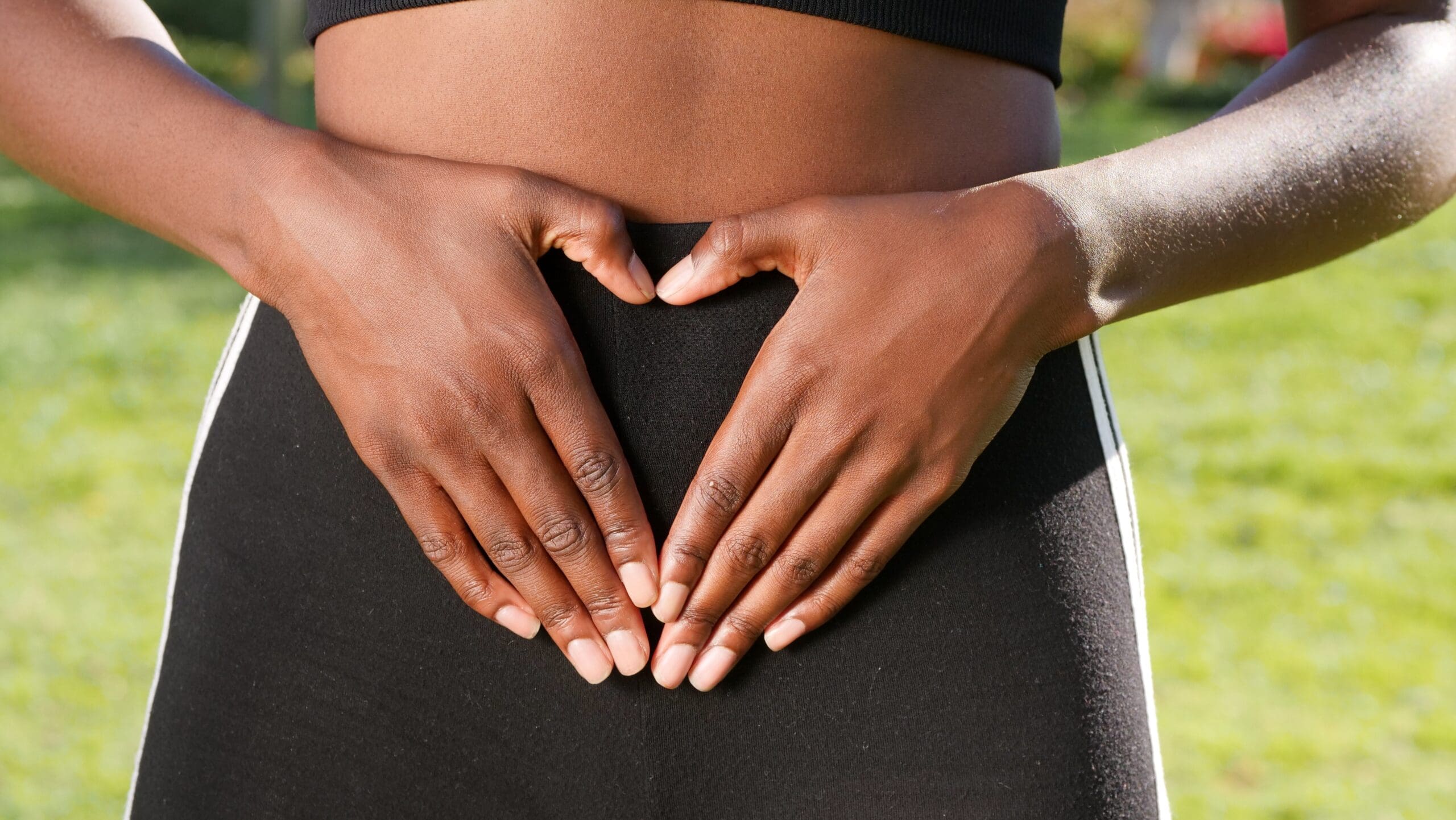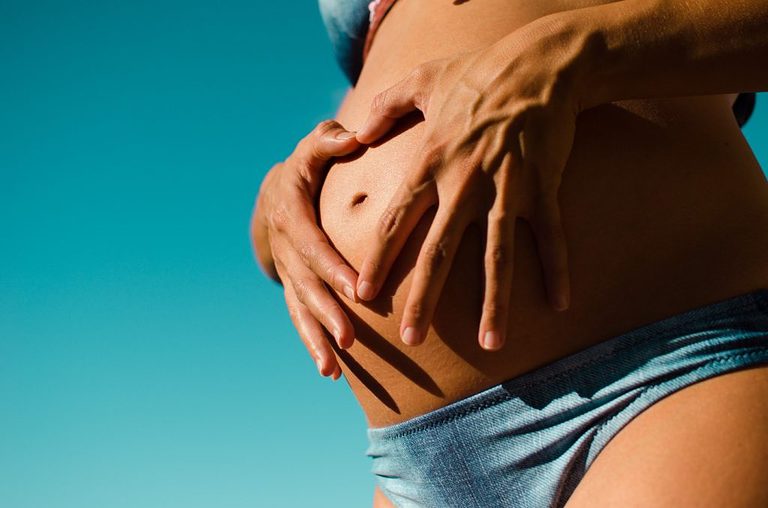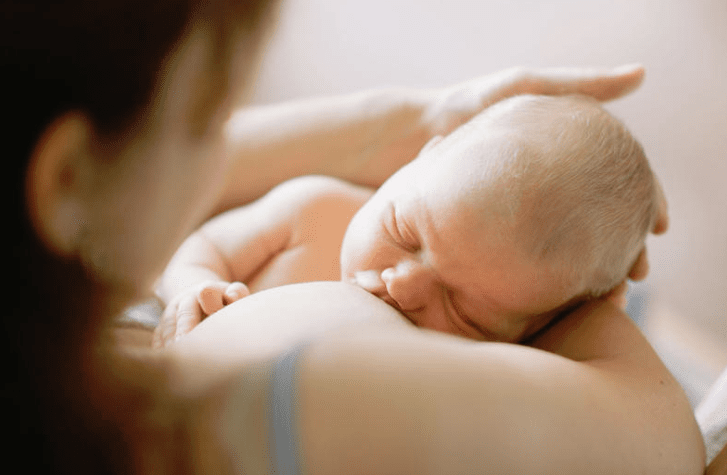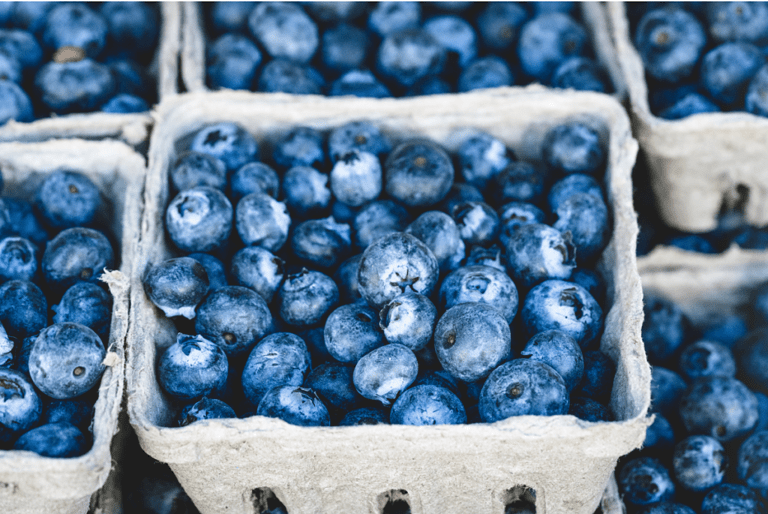Endometriosis is a chronic inflammatory condition that dominantly affects people assigned female at birth (AFAB) about 1 in 9, although a small number of those assigned male at birth (AMAB) are found to have endometriosis (AIHW, 2019; Rei, Williams & Feloney, 2018).
It can impact a wide range of organs, most known for its impact on reproductive organs like ovaries, fallopian tubes, uterus but it can also commonly affect other abdominal organs such as the bowel, bladder and more far-reaching organs too including the lungs and eyes! (Huang et al., 2013; Sharghi et al., 2019).
And with Irritable Bowel Syndrome (IBS) being twice as likely to be diagnosed in those with endometriosis (Saidi, Sharma & Ohisson, 2020), many of those with endometriosis or suspected endometriosis complain of digestive concerns such as severe bloating and abdominal distension, constipation, diarrhoea, nausea and more – which may also qualify for a diagnosis of IBS or may be a symptom associated with endometriosis itself.
Naturally, the connection between gut health, digestive symptoms and functional gut disorders like IBS are now being investigated more and more in association with endometriosis.

How Common Are Gut Health Concerns Amongst Those With Endometriosis?
Did you know that up to 85% of people presenting with endometriosis noted a digestive complaint in the past year (Ek et al., 2015)?!
Some studies show 65% of people with endometriosis report constipation, 43% report issues with diarrhoea and 41% report symptoms of nausea and/or vomiting (Nezhat, Hajhosseini & King, 2011).
It goes without saying that, changing your diet and lifestyle is the first thing we should be considering when it comes to managing these common and bothersome gut health concerns!

So, what is the link between endometriosis and gut concerns?
There are a number of potential reasons why people with endometriosis experience higher rates of digestive complaints and diagnosis of IBS. Whilst we don’t have a perfect explanation, here are some suspected ideas to date.
1. Visceral hypersensitivity
Visceral hypersensitivity refers to a difference in the sensitivity of the nerve endings innervating the abdomen meaning they are more sensitive to less gas and gastric contents and will trigger a pain response – hello endo belly and painful bloating! Make so much sense, right? (Delvaux, 2002; Issa et al., 2011).
2. Endometriosis in, around and on the bowel
The presence of endometriotic lesions themselves in and around the bowel can cause inflammation, and irritation and can manifest as gastrointestinal symptoms like constipation, diarrhea, bloating & gas (Habib et al., 2020).
And it may not need to be physically growing ON the bowel itself to cause digestive troubles too, the presence of this hormone-sensitive inflammatory tissue close to the bowel may be enough to alter gut function and contribute to these symptoms. Likely due to inflammation and its potential response to estrogen with its endometrial-like properties.
So location is important but it can just be in that peripheral area to cause issues for some.

3. Prostaglandins
Prostaglandins are hormone-like chemical messengers that are released prior to menstruation that cause contractions of smooth muscle structures to help the uterus contract (yes, these are the cause of your cramps!) so that it can shed its uterine lining, but they’re also known for contributing worsening inflammation and pain too (Cleveland Clinic).
Research is showing that people with endometriosis may have more of certain prostaglandins contributing to worsening the inflammatory response, impact estrogen and can support vascularization of those endometriotic lesions (i.e. making them more established – NOT what we want!) (Sacco et al., 2011).
However, prostaglandins can act locally on other structures like the bowel and bladder and create gut symptoms like changes in bowel frequency and consistency!
You can listen to a previous episode on our podcast, Fertility Friendly Food, to learn more about Period Poops…
4. Gut Microbiome
And finally, the gut microbiome has recently been connected to endometriosis.
Fascinating new research from recent years is showing that the billions of bacteria that live in our gut (amongst other microbes) may be uniquely different in those with endometriosis – almost like a gut microbiome signature, compared to those without endometriosis (Leonardi et al., 2020).
Could this be a potential new frontier to manage and/or diagnose endometriosis? Perhaps!
We aren’t there yet with the research, but it’s certainly interesting.
We know that differences in the gut microbiome may drive gastrointestinal symptoms as we see in IBS, so this might be another potential explanation. Or perhaps it is due to the changes in the immune system secondary to these gut microbiome differences, changes in estrogen metabolism that are having a knock on effect to the growth and recurrence of endometriosis – some research suspects so! (Jiang et al., 2021).
How to Support Gut Health with Endometriosis?
So, what practical changes can you apply to your diet and lifestyle to support a healthy gut microbiome and even ward off some of these pesky digestive complaints?
Here are some top tips to support your gut health with endometriosis:
- Eat a wide variety of plant foods such as fruit, vegetables, wholegrains, nuts, seeds, legumes, beans, herbs & spices – more diversity means a more diverse gut microbiome which is associated with a healthier gut and better health!
- Get at least 30 grams of dietary fibre each day – whilst our human enzymes may not digest fibre, our gut microbes live for it! And in return they will give you back nutrients and even a bit of energy plus a happier tum, yet another reason to optimise your plant foods each and every day. Check out this list of high fibre foods here.
- Incorporate fermented foods – like kimchi, sauerkraut, yoghurt, kefir, kombucha and miso can help support digestive health and the gut microflora.
- Hydration – you can’t get regular bowel motions until you get enough fluid in your body! A good rule of thumb is about 30 mL per kilogram that you weigh! You may need more or less dependent on your activity levels and the climate of where you live too. But that’s a great starting point!
- Move your body regularly – research shows that exercise can produce positive changes to the gut microbiota composition (Clauss et al., 2021).
- Get enough sleep – that’s right, poor sleep can create poor conditions for the gut microbiota, so get your 7-9 hours per night – every night to keep your digestive health happy! (Smith et al., 2019).
- Avoid unnecessary dietary restrictions – that’s right, those elimination diets are NOT good for your gut health, because they limit dietary variety and potential fibre and antioxidants that your gut loves! So, don’t attempt any dietary restrictions without personalised dietitian advice.
There’s SO much more, however, these should get you going to supporting your gut health with endometriosis.
Want to learn more about gut health and endometriosis? Join founder of The Dietologist and expert reproductive health dietitian & nutritionist and fellow endometriosis warrior, Stefanie Valakas APD for a practical 60 minute masterclass on how to nourish your gut with endometriosis!
Nourish Your Gut with Endometriosis Masterclass – secure your ticket today and we will donating $10 AUD to the Pelvic Pain Foundation of Australia.
Here’s what we cover inside with complimentary 90-days access to the recording to watch the as many times as you like PLUS a downloadable eGuide with practical toolkits to tackle common digestive symptoms.
Walk away with a scientifically-backed understanding of the connection between gut and endometriosis, how to leverage your lifestyle to support gut health and troubleshoot common symptoms like constipation, diarrhoea, bloating and nausea! Join now!







